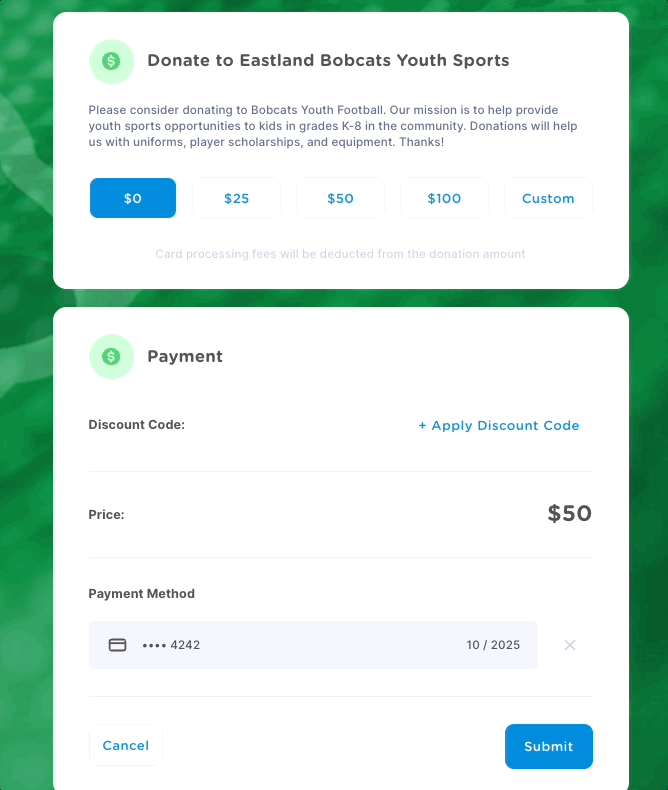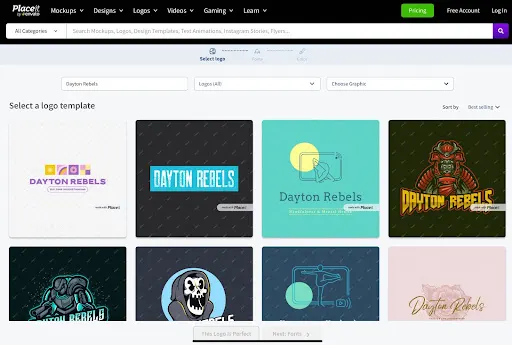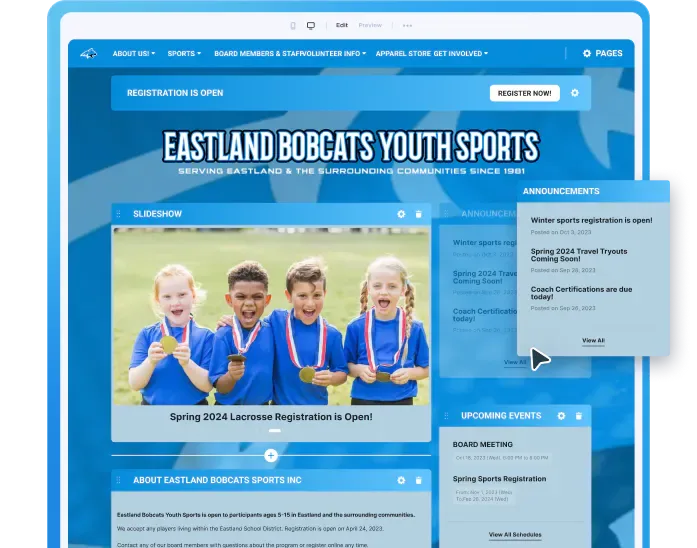
Table of Contents
Nonprofit sports teams are a great way to get people together and keep them active.
Are you looking to start one?
This article will guide you through the process of starting a nonprofit sports team, from choosing a sport to securing funding. Let's dive in!

Why start a nonprofit sports team?
Starting a nonprofit sports team can have numerous benefits for both the individuals involved and the community at large.
Some of these benefits include:
- Community engagement: Nonprofit sports teams bring communities together by fostering a shared sense of pride and unity.
- Skill development: Sports can teach players teamwork, communication, leadership, and discipline. Other aspects of life can benefit from these skills, too, like school and work.
- Youth development: Nonprofit sports teams can provide positive role models and structured activities for young people, helping them build character and make healthy life choices.
- Accessibility: Nonprofit sports teams can help to make sports more accessible to individuals from diverse backgrounds and socioeconomic levels.
Steps to start a nonprofit sports team
1. Choose a sport
The first step in starting your nonprofit sports team is deciding on the sport your team will focus on.
Some popular sports include:
- Basketball
- Football
- Baseball
- Softball
- Soccer
Take into account the interests and abilities of your target audience. Some sports leagues may require more funding or specialized facilities.
2. Develop a mission statement
Your non-profit sports team's mission and vision statements will serve as the foundation for all future decisions.
- Mission statements describe what the team hopes to accomplish.
- Vision statements describe your long-term goals and ambitions.
Take the Little League, for example. It’s mission statement is:
“Little League believes in the power of youth baseball and softball to teach life lessons that build stronger individuals and communities.”
It follows all the characteristics of a good sports mission statement. It’s succinct, states their offerings, and sets expectations for readers.
Parents who enroll their kids in Little League programs get an idea of the organization’s goals.

When writing your mission statement:
- Be clear and concise, avoiding overly complex language.
- Make sure the statements are inspirational and motivate your team members.
- Consider the needs and values of the community you'll serve.
3. Create a business plan
A well-crafted business plan will help you outline the structure, operations, and goals of your nonprofit sports team.
Include information about your target audience, competition, marketing strategy, and financial projections. A solid business plan will also be essential when seeking funding and support.
4. Structure your nonprofit organization
Establishing a solid foundation for your non-profit sports team involves several key steps:
- Create bylaws and policies: Draft bylaws to govern your sports league and establish policies that will guide its operations. Bylaws should cover topics such as membership requirements, board composition, and meeting procedures. Policies may include codes of conduct, safety protocols, and financial management guidelines.
- Assemble a board of directors: Recruit dedicated individuals with diverse skills and backgrounds to serve on your team's board of directors. They will be responsible for overseeing the organization's operations and ensuring its financial stability.
- Obtain necessary permits and licenses: Depending on your location and the nature of your team, you may need permits or licenses to operate. Check with local and state authorities for specific requirements.
5. Register your nonprofit
To officially establish tax-exempt status, you'll need to register with the appropriate government agencies. Non-profit amateur sports teams are often 501(c)(3) organizations (a nonprofit corporation).4. Structure your nonprofit organization
Establishing a solid foundation for your non-profit sports team involves several key steps:
- Create bylaws and policies: Draft bylaws to govern your sports league and establish policies that will guide its operations. Bylaws should cover topics such as membership requirements, board composition, and meeting procedures. Policies may include codes of conduct, safety protocols, and financial management guidelines.
- Assemble a board of directors: Recruit dedicated individuals with diverse skills and backgrounds to serve on your team's board of directors. They will be responsible for overseeing the organization's operations and ensuring its financial stability.
- Obtain necessary permits and licenses: Depending on your location and the nature of your team, you may need permits or licenses to operate. Check with local and state authorities for specific requirements.
They often qualify for one of three reasons:
- Educational purposes.
- Charitable purposes.
- Amateur athletic organization.
⚡Action: We recommend consulting with a legal professional to determine the best structure for your team.
You’ll also need to complete IRS form 1023 (You can find it on the Internal Revenue Service (IRS) website).
There are a few things you’ll need to file this form.
- A list of what your organization offers.
- A disillusion provision accepted by the government.
- Filed Articles of Incorporation.
It is a long and technical application, so you should seek professional assistance.
6. Get funding
Funding is essential for the success of your nonprofit sports team. There are various funding options to cover expenses such as equipment, facilities, uniforms, and transportation.
Fundraising ideas
Consider hosting fundraisers like charity tournaments, bake sales, or car washes to raise money for your team. Engage your community to support your cause and build lasting relationships.
Membership fees
Charge players a fee to join the team. Ensure that the fees are reasonable and don't exclude potential participants based on financial constraints.
Grant opportunities
Research and apply for grants available for amateur athletic organizations. Government agencies at the local, state, and federal level have youth sports grants. There are also private foundations that offer sport specific grants.
Donations
Encourage supporters to make tax-deductible donations to your non-profit sports team. You can send donation letters out to local businesses or corporations. Or, you can put a registration form on your website to get donations from parents and guardians.

Sponsorships
Partner with local businesses to secure sponsorships for your team. In exchange for financial support, you can offer brand exposure through team uniforms, banners, and other promotional materials.
7. Promote your team
Effective promotion is key to attracting players, supporters, and sponsors.
Create a brand identity
First, you’ll want to build a brand identity. Create a distinctive youth sports logo, team colors, and other visual elements that represent your team's values and goals.
Use a logo generator like Placeit. They have templates made for different sports including baseball, basketball, football, hockey, and soccer.

Establish an online presence
Build a website that describes your team, its mission, and upcoming events. Maintain active social media profiles to engage with fans and supporters.
Make it easy for yourself by using Jersey Watch to build your sports website. You can build one quickly with our sports website templates.
Here’s an example of a website built on Jersey Watch.

Create promotional materials and work with local media
Design and distribute flyers, posters, and other promotional materials to raise awareness of your team within the community. Find local newspapers, radio stations, and television networks to cover your team's games.
You’ll also want to host sports clinics, workshops, or other community events to showcase your team's commitment to promoting healthy lifestyles and building community.
8. Recruit players and coaches
Now that your brand is set, it's time to find players and coaches. Here are some ways to recruit them:
- Scout local talent: Attend local games, leagues, and tournaments to identify potential players and coaches.
- Host open tryouts: Organize open tryouts to give prospective players an opportunity to showcase their skills and compete for spots on the team.
- Network: Connect with schools, sports clubs, and other local organizations to spread the word about your team and recruit interested individuals.
- Use social media: Use social media platforms to promote your non-profit sports team and engage with potential players and coaches.
💡PRO TIP: Provide resources and training programs to help coaches and players improve their skills and advance their careers.
9. Manage the team
As your nonprofit sports team grows, it's essential to maintain strong communication and organization. Schedule regular meetings, establish clear expectations, and provide ongoing support to your athletes, coaches, and staff.
Another important element is having a youth sports management tool to manage your league. Jersey Watch helps you:
- Make registration simpler with online forms and payment options.
- Communicate with parents and coaches easier with text and email messages.
- Run background checks for coaches and volunteers, keeping everyone safe.
Jersey Watch also provides award winning customer support to ensure your nonprofit sports team runs smoothly.

Tips for starting a nonprofit sports team
- Setting measurable goals: Establish clear, quantifiable objectives for your team and track progress toward these goals.
- Conducting regular assessments: Periodically review your team's performance, financial stability, and overall operations to identify areas for improvement.
- Seeking feedback from stakeholders: Solicit input from players, coaches, fans, and other stakeholders to inform decision-making and guide future actions.
- Embracing change and innovation: Be open to change and willing to adopt new ideas, approaches, and technologies to enhance your non-profit sports team's effectiveness and longevity.
- Create partnerships: Collaborate with local schools, community centers, and other organizations to access resources and facilities, and to expand your reach.
Start your nonprofit sports team today
Remember, starting a nonprofit sports team requires dedication, planning, and ongoing effort. However, the positive impact on your community and the lives of your participants can make it an incredibly rewarding endeavor.
Following the steps in this article will help you build a successful, impactful sports organization.